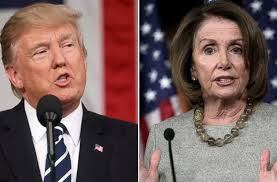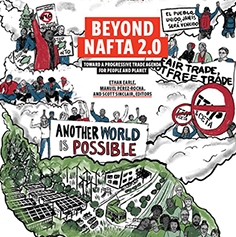Medical corporations seek tools to protect their profits despite harmful effects on public health.
June 17, 2013 By Margaret Flowers, M.D.
Originally published in AlJazeera.com
The Trans-Pacific Partnership (TPP) is a deal that is being secretly negotiated by the White House, with the help of more than 600 corporate advisers and Pacific Rim nations, including Australia, Brunei, Canada, Chile, Japan, Malaysia, Mexico, New Zealand, Peru, Singapore and Vietnam. While the TPP is being called a trade agreement, the US already has trade agreements covering 90 percent of the GDP of the countries involved in the talks. Instead, the TPP is a major power grab by large corporations.
The text of the TPP includes 29 chapters, only five of which are about trade. The remaining chapters are focused on changes that multinational corporations have not been able to pass in Congress such as restrictions on internet privacy, increased patent protections, greater access to litigation and further financial deregulation.
So far, all that is known about the contents of the TPP is from documents that have been leaked and reports from NGOs and industry meetings. Unlike other trade deals, the White House refuses to make the text available to the public. In fact, the negotiators refuse to publish the text until four years after it is signed into law. Why are they being so secretive? Former US Trade Representative Ron Kirk said he opposed making the text public because doing so would raise such opposition that it could make the deal impossible to sign.
From the information available, one thing is clear about the impacts of the TPP on health care: the intention of the TPP is to enhance and protect the profits of medical and pharmaceutical corporations without considering the harmful effects their policies will have on human health.
We know that the TPP will extend pharmaceutical and medical device patents and provide other tools to keep the prices of these necessities high. This will make medications and treatments unaffordable for millions of people and raise the costs of national health programmes. At its worst, the TPP will provide a pathway to infect the world’s health systems with the deadly parasite of for-profit health corporations that plague the US.
Patents keep prices high
Through the TPP, pharmaceutical and medical device corporations are seeking extensive patent protections using a process known as “Evergreening”. The TPP gives 20 years of patent protection for pharmaceuticals and medical devices; however, patents can be renewed for another 20 years each time there is a change in an indication or delivery. For instance, if a drug is indicated for headaches, but then the pharmaceutical company finds that it is also helpful for stomach cramps or makes it a capsule instead of a tablet, a new patent may be issued. In reality, patents can be extended indefinitely under the TPP.
Doctors Without Borders criticised this practice, stating that patent protections in previous trade agreements raised the price of life-saving medications and made them unavailable to people in poorer countries. Patents prevent the production of low cost generic forms of medications. Yet it was the availability of generic medicines to treat HIV and other infectious diseases that allowed advances to be made in decreasing their impact in developing countries.
Because of the negative impact on public health from patent protections in previous trade agreements, such as the Korea Free Trade Agreement, former President Bush rolled some of these practices back. Unfortunately, the TPP will move them forward again.
In fact, the TPP goes farther than previous agreements by also requiring that surgical techniques, medical tests and treatments be patented. This will restrict the availability of these treatments, especially in health systems that have limited resources.
Doctors Without Borders also expressed concern that patent protections encourage innovation based on profit instead of the needs of people, particularly those in poor nations. Corporations do not see it as in their financial interest to address health conditions more prevalent in poor nations which do not have the financial resources to buy their products. But it is often in these situations treatments can have the greatest impact on quality of life.
Attacking public health systems
An area of great concern is language within the TPP concerning State-Owned Enterprises (SOEs). These are institutions that are fully or partially owned by governments. SOEs are very common in countries such as Vietnam, Malaysia and Singapore.
Corporate lobbyists are concerned that SOEs have “unfair advantages” over private industry. These advantages include government subsidies, preferred tax status, low finance rates and access to capital. According to a leaked chapter, corporate lobbyists believe that there is a conflict of interest because SOEs have political considerations such as functioning to provide basic goods and services for their population and believe that instead SOEs should operate strictly as commercial entities seeking profit.
The TPP requires SOEs to disclose any special advantages they receive and the government to give the same advantages to corporations. It also provides methods for corporations to sue governments if they believe that they are not being treated fairly. The text outlines punishments such as increased tariffs on exports from the country found in violation and suspension of any “tariff concessions” made to the country in violation on imports.
Text from a section of the TPP called “Annex on Transparency and Procedural Fairness for Healthcare Technologies” was leaked in June 2011. It reveals this conflict between medical industries that have strictly commercial interests and public health systems that are concerned about the health of the population. Medical industries are pushing on all fronts to keep their prices high while public health systems must negotiate to keep prices affordable and maximise what they can cover within their budgets.
To the medical industries, such price negotiation is one of the “unfair advantages” of public health systems. When a public health system negotiates a lower price, it is said to be exerting its market power. On the flip side, when a government extends patent protections to medical industries to keep prices high, this is not considered to be an unfair advantage granted by the government.
Medical industries are pushing for other concessions within the TPP to “level the playing field”, also known as forcing public entities to operate as market-based entities, such as factoring the cost of not just research, development and production of drugs and medical devices, but also the cost of marketing them into what is considered to be a fair market price. And they only view prices negotiated without any government influence as fair. These provisions are significant because the TPP allows pharmaceutical corporations and others to challenge the legitimacy of any reimbursement decisions made by public health systems through the courts.
Patent and price protections for multinational pharmaceutical and medical device corporations based in the US will benefit their bottom line and their investor’s pockets, but may bounce back and undermine public health systems in the US. The leaked text indicates that the above provisions only apply to health authorities under the jurisdiction of the federal government. However, the loopholes are large enough that all of the US public health systems, which include Medicare, Medicaid, Tricare and the Veterans Health Administration, can arguably be considered to be federal.
These systems already struggle within the market-based US health system that is most expensive in the world. The US health system wastes one third of health dollars on a bloated bureaucracy due to thousands of different health insurance plans, each with different rules. And people in the US pay the most for prescriptions and health services because there is no rational system for setting prices. High prices in the private health sector drive up prices in the public health sector too. For example, at present Medicare is prohibited from negotiating a bulk price for pharmaceuticals.
Over the past four years, there has been an increase in self-rationing in the US, patients avoiding or delaying necessary medical care and medications, due to health costs. At the same time, CEOs of health industries are the highest-paid in the nation. For the good of public health, we must reverse this trend towards greater privatisation and lower the cost of care. But the TPP will protect the medical industries and give them greater power to use their wealth and the rigged trade tribunal court system to protect their profits.
This will undermine health systems in the US and abroad. High prices could bankrupt public health systems like those in Japan and Australia (ranked among the top in the world). Under the TPP, it is also possible that Japan’s regulation of health insurance which includes controlling coverage, prices and profits would qualify it as an SOE that has unfair advantages. This could open the door for private multinational health insurance corporations to enter TPP signatory countries and demand access and that regulations are loosened.
As medical corporations gain greater wealth and power, we can expect to see further abuses to the detriment of human health. The TPP takes global health in the wrong direction. The losers in this negotiation will be the patients if the profits of corporations are permitted to come before the health of people.
Margaret Flowers, MD, served as Congressional Fellow for Physicians for a National Health Programand is on the board of Healthcare-Now. She is co-director of It’s Our Economy and co-host of Clearing the FOG Radio Show.
Follow her on Twitter: @MFlowers8
The views expressed in this article are the author’s own and do not necessarily reflect Al Jazeera’s editorial policy.

